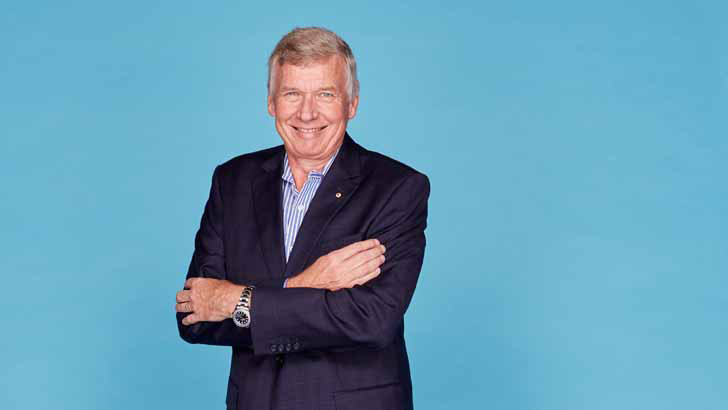Ask Paul: How can I take $500k out of super to buy a home?
By Paul Clitheroe
Dear Paul,
I received a superannuation split as part of divorce proceedings. The money, about $900,000, is with CSC (military super) and is in its growth phase; it accumulates about $45,000 a year
as an Associate A account.
Potentially, my super will increase by $300,000 by the time I'm 60 and by another $350,000-$400,000 by age 67 if left untouched, bringing the total close to $1.6 million.
I have just turned 54 and would ideally like to access my super (part thereof) at 60 so I can put it with other funds to purchase a freestanding home.
Is there a way to do this that does not involve a self-managed fund? I realise retirement age is age 67 but it's such a large amount of money that it would change my circumstances significantly to be able to access $500,000 at 60.
There is a lot of information about superannuation, most of it confusing.
I want to be careful about how I approach accessing those funds, as ideally I would also like to use my super to carry me through retirement.
It has been suggested that I set up an SMSF and purchase real estate that way, but I am aware that I cannot live in a property purchased through an SMSF.
Is there a defining rule for buying property through an SMSF that determines at what point you can live in it? This might change how and when I access my super. - Michelle
You have certainly nailed it when you say super is confusing, Michelle.
At times I get very frustrated about this; at other times I just have to laugh.
A pretty good summary of the complexity in super is that I gave up trying to work out the incredibly detailed and complex issues in super legislation years ago and use a specialised super expert who works inside the firm that gives us tax advice.
At a general level, I've got pretty good knowledge of money issues, but when it comes to individual, specific advice, we all need a professional.
But we can take a look at some bigger-picture issues that I think are important to you.
At the age of 54, $900,000 in super is a significant sum. You also mention that you have other funds outside super that you could use to purchase a freestanding house.
From this comment, I am guessing that you may own an apartment or a non-detached home. These outside-super assets will be very valuable to your future plans.

Realistic assumption
We can use the start of compulsory super in 1991 to give us at least a historical view on super returns. A good, low-cost growth fund will have returned some 8%-9%pa over the 32 years since then. This has included major market ups and downs, so it's a pretty good length of time.
If we take the sort of investments a major super fund holds - shares, property, infrastructure, interest-bearing investments and so on - this type of return makes sense.
The Australian sharemarket has returned some 13%pa, including dividends, since 1900. So, while historical investment returns are only an indication of future performance, we have thousands of years of history.
Sure, a meteorite may hit our planet, a nuclear war may break out or a new virus may kill all of us. But humanity has struggled along and generally prospered for many thousands of years, so I am not unhappy to take a conservative guess.
Let's assume your super earns around 5%pa above inflation. This makes your estimate of another $300,000 in super, in today's money, a realistic assumption.
Accessing super at 60
Now we look at you taking out $500,000 at 60.
This is quite possible, but there are rules around accessing super - no surprises there. Your birth date is after June 30, 1964, so your preservation age is 60. This means that if you retire you can take out any amount you like.
But what if you are still working? You could take a pension from your super, but this is not going to give you the $500,000 you will need.
So, we need to turn to the 'conditions of release'. The Australian Taxation Office makes this pretty clear.
A condition that may work for you is that you cease an employment arrangement on or after 60.
This is a valid condition of release, even if you do not intend to retire permanently from gainful employment, and you can access superannuation accumulated up until then. So, you might cease working, access some super and start working again.
Incidentally, you can access your super at 65; you mention 67, but you may be thinking of the age pension.
SMSF 'expensive to run'
Next, we need to talk about an SMSF. Sure, you could move super to this and potentially borrow to buy a property. Here we are getting way past my general thoughts.
This is a very big decision. An SMSF is expensive to run.
It does concern me that many advisers who recommend them benefit from the fees that flow from an SMSF and I wonder if the returns are any better than you would get from your current fund.
Here I advise you to be cautious.
Seek advice
I imagine your current fund offers access to professional advisers. Please go and have a meeting with one of them, or an independent super expert. Your future lifestyle is quite dependent on the decisions you make today.
You need advice from an expert who knows everything about your situation. Only then can you make the best decision.
Move slowly and seek personal, professional advice. Do not hesitate to get a second opinion. You are in a very strong financial position; now is the time to develop a robust plan.
Ask Paul: Where are they now?
Has your question appeared in Ask Paul over the years? We want to hear from you! Email [email protected] to let us know how your situation turned out. We will publish a selection of these later this year.
Get stories like this in our newsletters.



